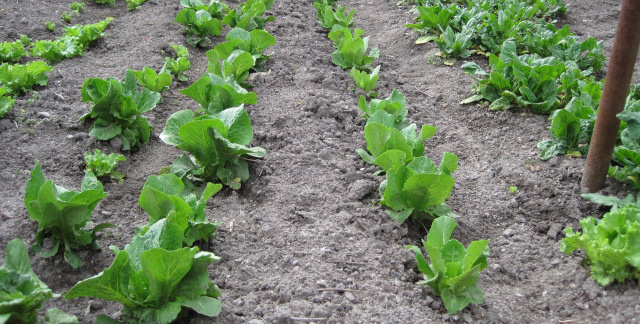Brussels, October 11, 2011 – Proposed reforms to the future of farming in Europe are unlikely to be sufficient to protect the environment and the majority of farmers, or curtail corporate control of the food chain, Friends of the Earth Europe says today on the eve of the publication of a new draft Common Agricultural Policy (CAP).
The reforms to be proposed by the European Commission tomorrow (October 12) are an historic opportunity to shake-up European agriculture but leaked drafts suggest proposals have already been drastically watered-down. [1]
Stanka Becheva food campaigner for Friends of the Earth Europe said: “Agriculture in Europe is in a mess – with wildlife and farmers disappearing at an unprecedented rate. We need a root and branch reform of European farming that benefits the environment, citizens and farmers whilst protecting the climate and guaranteeing food supplies for the future.
“We fear that the European Commission has caved in to big business and will dress up a weak and ambiguous proposal as a green reform. We need strict and bold measures addressing the challenges we face – climate and biodiversity protection, cleaner water and reduced land-grabbing for imported feed. Anything else will be greenwash.”
Key reform issues:
- The Common Agricultural Policy (CAP) will cost around 60 billion Euros per year of EU taxpayers’ money between 2014 and 2020.
- Despite widespread support from EU citizens for local and environmentally friendly farming [2], the proposals are likely to continue supporting factory farming and exports to benefit the food industry. Prices for farmers will continue at low levels and lead to the loss of thousands of farms.
- 12% of Europe’s climate emissions come from the agriculture sector and factory farming is the main contributor to this. [3]
- Factory farming is heavily dependent on soy-based animal feeds, whose production leads to widespread deforestation in South America, rural conflicts and climate emissions. The imported protein feed also leads to an imbalance in nitrogen. Nitrogen pollution in the EU costs up to 150 billion Euros per year. [4]
- The CAP sets the framework for protecting biodiversity in the EU. Biodiversity measures must be adequately supported in order to reach the targets set out in the EU biodiversity strategy.
Friends of the Earth Europe is calling for the CAP proposals to:
- Make Europe more self-sufficient in animal feeds in order to reduce its dependency on imported animal feeds, especially soy.
- Give farmers payments only if they contribute to protecting the environment with simple measures like rotating crops on the same field using a legume in the rotation (e.g. bean, peas, clover) – a key measure to reduce emissions, stabilise costs and cut feed imports; keep and use grassland on their farm in an extensive way, manage 10 percent of the farm area for biodiversity, equalise the farm’s nutritional balance.
- Make the system fairer by capping the money going to big farms and distributing it to smaller farms and introducing clear market rules for agriculture enterprises.
- Phasing out export subsidies and indirect forms of export support by 2013.
- Raise the level of ambition and support for biodiversity measures in both pillars
Stanka Becheva continued: “You cannot green the CAP without reducing our dependency on imported animal feeds. The expansion of soy to feed our factory farms is destroying rainforests, rural communities and making climate change worse.These reforms are a golden opportunity to encourage farmers to grow their own high-protein crops, benefiting both the environment and farmers.”
NOTES:
[1] Leaked texts show that earlier promises to link payments to farmers to more ambitious green practices have been substantially weakened. See drafts from beginning September: http://ictsd.org/i/agriculture/113805/?utm_source=WECO+newsletter&utm_campaign=7aa0adda3e-WECO+84-+9_16_2011&utm_medium=email [2] http://ec.europa.eu/public_opinion/archives/ebs/ebs_368_en.pdf [3] http://ec.europa.eu/agriculture/analysis/external/livestock-gas/full_text_en.pdf [4] http://www.nine-esf.org/ENA-Book




